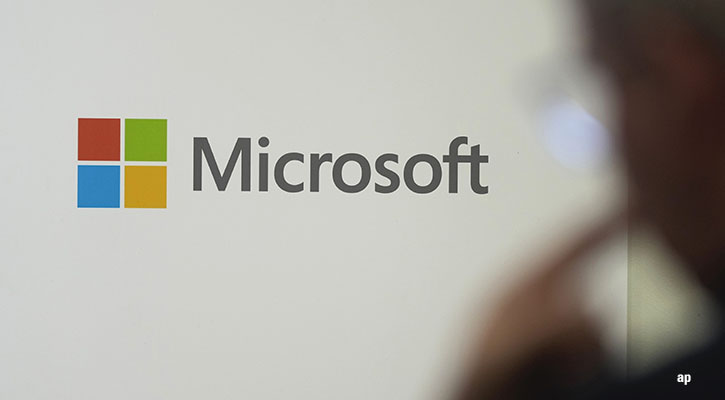(Alliance News) - Rio Tinto PLC on Tuesday hailed a "strong" operational performance in 2020, with its Pilbara iron ore asset in Australia posting an output rise, shaking off Covid-19 and a cyclone at the start of the year.
Aside from the virus outbreak and being hit by brute weather early in the year, Rio Tinto's 2020 will be remembered for outcry and regulatory scrutiny after the company blew up a 46,000-year-old Aboriginal heritage site to expand the Pilbara iron ore mine in Western Australia. Rio on Tuesday warned the regulatory impact from that event "remains unknown".
Pilbara iron ore shipments rose 2% annually in the fourth quarter to 88.9 million tonnes and were up 1% over 2020 to 330.6 million tonnes. Pilbara output rose 3% year-on-year to 86.0 million in the final quarter and by 2% over the whole year to 333.4 million tonnes.
Pilbara suffered Covid-19 disruptions and the impact from Cyclone Damien during the cyclone season in the first quarter of 2020.
At Iron Ore Co of Canada, production of pellets and concentrate rose 7% annually in the fourth quarter to 2.7 million tonnes, though in the whole of 2020, it fell 1% to 10.4 million tonnes.
Rio's fourth-quarter output of bauxite - an ore used in chemicals and cements - fell 12% annually. Mined copper production fell 4% and titanium dioxide slag by 5%, but aluminium production rose by 4%
For the whole of 2020, bauxite output rose 2%, aluminium was flat, mined copper fell 9%, and titanium dioxide slag fell 7%.
"We have delivered a strong safety and operational performance in the face of the significant global challenges of Covid-19. Our 2020 performance reflects the resilience of the business, and the commitment and flexibility of our employees, customers, communities and host governments," Chief Executive Jakob Stausholm said.
Stausholm was promoted to CEO from chief financial officer with effect on January 1. He replaced Jean-Sebastian Jacques, who it was announced in September would resign with effect at the end of March, or earlier should a successor be appointed before then.
In May, Rio Tinto had blasted rock shelters in the Juukan Gorge in Western Australia's remote Pilbara region, destroying one of the earliest known sites occupied by Australia's indigenous people, in order to expand its iron ore mine.
Following a board review in August, the group said it has engaged extensively with shareholders, some of which had expressed concerns about executive accountability for the failings identified.
Rio Tinto said on Tuesday: "We have commenced implementation of the recommendations from the board review of cultural heritage management and are developing additional measures to enhance our partnerships, as we continue to focus on the longer-term process of regaining the trust of traditional owners."
The company noted that economic activity, particularly in Europe, continues to be hurt by Covid-19, though it did note that industrial activity in China is now at pre-virus levels.
Iron ore prices "rose significantly" in the second half of 2020, aluminium prices "rebounded" and copper prices "remain strong", Rio added.
Turning to its 2021 output forecast, Rio expects Pilbara shipments between 325 million and 340 million tonnes, anywhere between a 1.8% decline and a 2.7% rise from 2020.
Bauxite output is expected to be close to 2020's 56 million tonnes. Rio's guidance range for 2021 is for production between 56 million and 59 million tonnes. Aluminium output is forecast between 3.1 million and 3.3 million tonnes, after 2020's 3.2 million tonnes.
For mined copper, Rio Tinto expects production between 500,000 and 550,000 tonnes, from a 5.3% fall to a 4.2% rise from 528,000 in 2020.
"The future impact on our Pilbara iron ore operations, mine developments and heritage approach from the reform of the Aboriginal Heritage Act 1972 remains unknown. We will maintain a high level of engagement with traditional owners regarding current and proposed plans for mining activities and continue to work through scenarios in an iterative manner as cultural assessments and mine designs progress, with a broad range of options available given the flexibility in our Pilbara network," Rio Tinto added.
Looking ahead, Rio flagged a delay at its Winu copper-gold project in Australia. It now expects first ore in 2024, not 2023.
"At the Winu project in Western Australia, drilling and fieldwork activities continue with 90 kilometres of drilling completed during 2020. We are actively engaging with the traditional owners through on-country heritage surveys, monitoring and agreement making, which is expected to continue into 2021, with first ore now expected in 2024, subject to regulatory approvals, traditional owner and other consents and Covid-19 restrictions," the company added.
Rio Tinto shares closed up 0.7% at AUD119.63 each in Sydney on Tuesday.
By Eric Cunha; ericcunha@alliancenews.com
Copyright 2021 Alliance News Limited. All Rights Reserved.






























